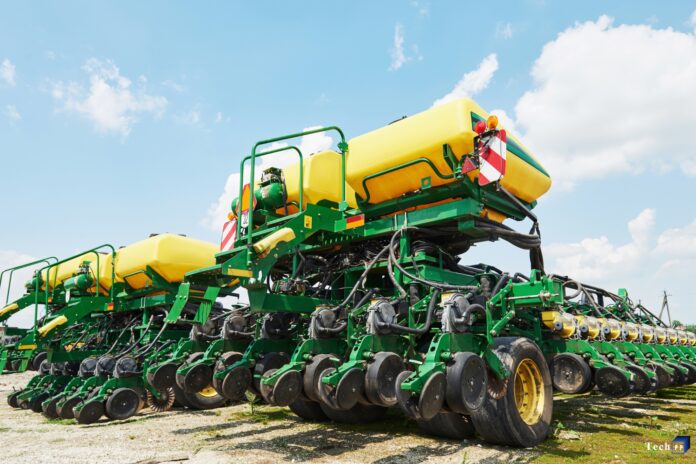Afruimwagens! Resource and technology innovation are pivotal when considering smarter and more efficient farming practices. One innovation that is not well known but is practical and useful in agribusiness and hospitality management is afruimwagen. It originates from the food and hospitality industry, but its versatility as a modern farming tool makes it intriguing. Learning its contribution tells us how even small innovations make a big difference in efficiency and resource management.
What are afruimwagens?
Afrumwagens are purpose-built mobile carts for the elimination of dishes, trays and cutlery in restaurants, hotels, schools, cafés, and even hospitals. It is of Dutch origin where “afruimen” means to clear and “wagen” means cart. They are mobile pieces of equipment designed for large scale operations to automize and reduce the physical workload and and time needed for the cleanup.
While primarily associated with the food industry, afruimwagens use of ergonomics, mobility, and compartmentalization have made them useful in agriculture and farming operations.
Aframwagens in farming: a change in functionality.
A farming practice and a dish cart, what is the connection? The answer is versatility. Many modern farms and agricultural enterprises are utilizing afruimwagens in a much more practical sense, due to their modular design and ability to function as tiny harvesters as well as in the transportation of tools and even in waste management.
In farming these carts are used for the following:
- Harvest collection: Smaller harvests such as fruits, herbs, and flowers.
- Tool transportation: Systematic transportation of farm and gardening tools between the fields.
- Waste clearing: Packaging and collection of production waste or plant debris.
- In farm cafes or agritourism : afruimwagens are still used as in their traditional role for clearing dishes and trays, therefore, farm-to-kitchen links.
This showcases the ingenious repurposing of devices that are fashioned for a specific field, thereby planting the seeds of smarter farming.
What makes afruimwagens valuable and their features
1. Mobility
Aframwagens are provided with strong wheels which makes them easy to move from one place to another, be it a farm path or a cafe.
2. Durability
Withstands constant use and exposure to different environments. Made from stainless steel, aluminum, or heavy-duty plastics, these carts endure constant wear and tear.
3. Organization
Dishes, tools, and produce can be arranged orderly due to multiple shelves and compartments.
4. Ergonomics
Workplace health is improved and physical tasks are made easier through ergonomics.
5. Adaptability
They can be tailored for restaurants, hospitals, or even agricultural purposes, showcasing remarkable design flexibility.
Benefits of Using Afruimwagens in Farming
1. Improved Efficiency
By combining multiple items into a single transport, farmers can now save time and avoid unnecessary trips.
2. Sustainability
The need for multiple specialized tools is minimized because tools such as afruimwagens are reusable across industries.
3. Cost-Effective
Afruimwagens are multifunctional, thereby removing the need for separate carts for each task.
4. Worker Productivity
Fatigue is reduced, enabling workers to concentrate on valuable tasks rather than low-level manual carrying work.
5. Scalability
These carts are suitable for all operational sizes, from small family farms to large agricultural businesses.
Afruimwagens vs. Traditional Farming Tools
In contrast to basic baskets or wheelbarrows, afruimwagens provide enclosed, tiered shelving which is easily maneuvered. This is crucial for organized and hygienic modern agriculture, especially with the increasing emphasis on farm-to-table business models.
Case Example: Afruimwagens in Agritourism
In Europe, afruimwagens are heavily relied on agritourism farms that blend hospitality and farming. These carts serve as a portable sink, transferring food and washing dishes, as well as aiding in fieldwork. Their multifunctional role integrates hospitality and agriculture, epitomizing versatility.
The Future of Afruimwagens in Farming
Looking towards the future, afruimwagens alongside advances in smart farming and automation, could evolve into afruimwagens 2.0. These enhancements could include:
- GPS Tracking for efficient maneuvering across the farms.
- Sensors that monitor harvestable produce’s weight.
- Eco-friendly transport via solar-powered mobility.
This forward-thinking approach could transform afruimwagens from simple carts into solar-powered mobility, situating them within the agricultural Internet of Things (IoT) framework.
Q&A Section
Q1: What is the primary purpose of afruimwagens?
A: Their primary task is to clear dishes, trays, and cutlery in a hospitality setting, but can be adapted to farming for tools and produce transport.
Q2: Why are afruimwagens suitable for farming?
A: Their mobility, durability and ergonomic organizational design add versatility, making them practical on farms.
Q3: How do afruimwagens improve farming efficiency?
A: Time efficiency in conjunction with reduced physical strain of work alongside multiple item transport boosts productivity.
Q4: Are afruimwagens costly?
A: The industrial-grade afruimwagens may be expensive, but their long-lasting nature, along with versatility, make them affordable over time.
Q5: What does the future hold for afruimwagens?
A: With the advancement of modern agriculture, they may become more intelligent with the addition of digital features like sensors and monitoring systems.
Conclusion
Even though afruimwagens are simple in design, they underscore the value of ingenuity and practicality, which is the backbone of more intelligent hospitality and agricultural practices. What started as a tool for table clearing in fast-paced settings, these mobile carts serve as a reminder of the power of adaptive design in the advancement of productivity, environmental stewardship, and the wellbeing of workers.
While their primary function in agriculture may be minor, the afruimwagens are instrumental—enabling intelligent workflows, waste reduction, and preparing the industry for the future. The restaurant, the school, or the modern farm—afruimwagens remind us that in many cases, the most straightforward solutions can have the most profound effects.


